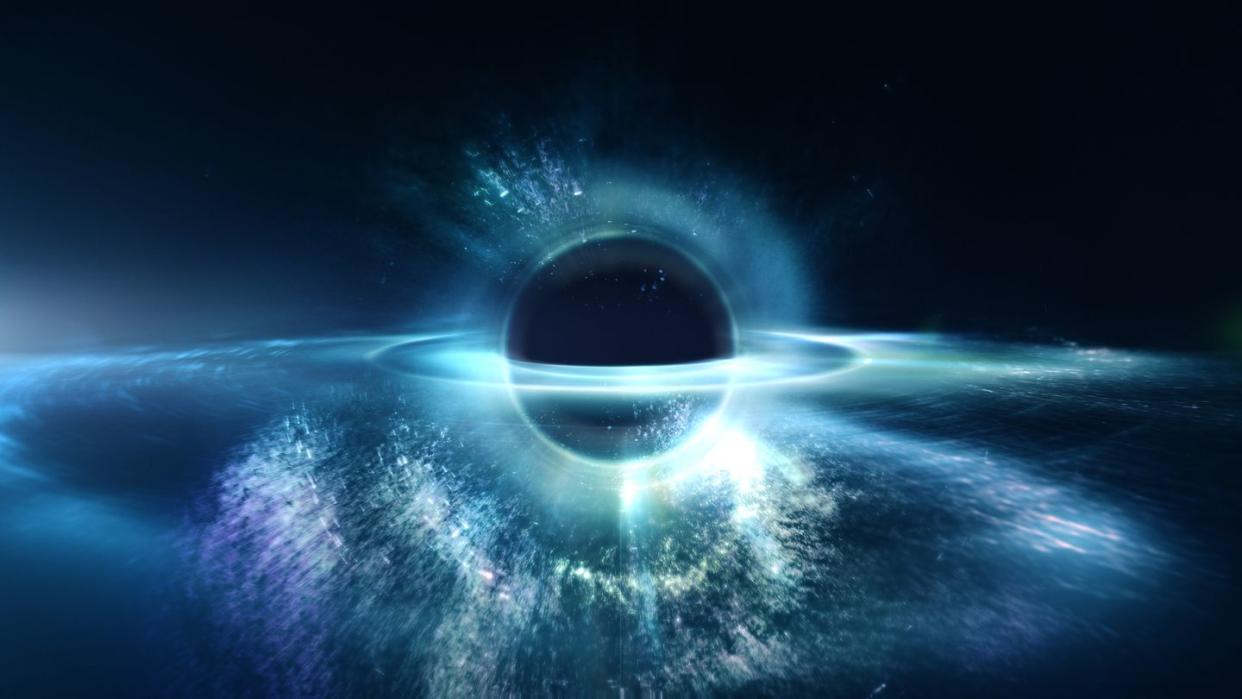Gravity Might Reverse—or Undo—the Big Bang, According to 5,000 Robots

The Dark Energy Spectroscopic Instrument (DESI) in Arizona may show that dark energy is weakening.
This preliminary data is just one year of DESI’s planned five, but at high precision for this field.
Dark energy has been considered a “cosmological constant” since Einstein’s original use over 100 years ago.
In new research, scientists have shared data from a special observatory, and it’s lead them to theorize that dark energy may be weakening. This data all comes from the first year of observation of the Dark Energy Spectroscopic Instrument (DESI), an array of 5,000 robots that have worked together to map the cosmos in more detail than ever before.
While we don’t yet fully understand dark energy, a shift in our core understanding of the concept—from thinking of it as constant to thinking of it as weakening—could affect all of physics, and influence how our universe eventually ends.
When talking about the history of the universe today, scientists use a paradigm called the Lambda Cold Dark Matter (ΛCDM) model—a mathematical equation that works out in harmony with our current understanding of the Big Bang origin of the universe. And an essential part of it is the cosmological constant, lambda, which dates back to Albert Einstein but has evolved over time in its purpose. Lambda’s constancy is essential to our understanding of the ΛCDM model, and the constant is closely linked with dark energy, which was also suggested to be constant.
After a year of observation at DESI in Arizona, however, dark energy is not behaving exactly as expected. “We’re seeing some potentially interesting differences that could indicate that dark energy is evolving over time,” director Michael Levi said on the DESI blog.
Talking about this revelation last week, Popular Mechanic’s Darren Orf laid out what a big deal this discovery is for scientists, especially considering that this should be just the beginning what DESI will uncover. It’s important to note that this data represents just one year out of DESI’s planned project life of five years total, and that the observations may change or fit into a different conclusion as more data is collected.
But this is also, by quite a bit, the most precise measurement set of the entire cosmos to ever be collected. Using its 5,000 robot plotters, DESI can step back a billion years at a time to create seven slices, each capturing a snapshot of history from between 3 and 11 billion years ago. The robot observers have sophisticated abilities to pull apart layers of light and dimming in order to gain insight into the oldest reaches of the cosmos. Their data slice capturing the earliest cosmos, in particular, is by far the most precise ever.
So, if there’s a good chance DESI isn’t just flat-out wrong, what does it mean if dark energy is weakening? Well, dark energy pushed the universe apart while the slowing residual energy from the Big Bang keeps things closer together. Writing for Space.com, Robert Lea analogizes this to someone being pushed on a swing: the Big Bang is the push that naturally comes back to a stop, while dark energy is a mysterious, steady, additional push that keeps the swing moving when no one expects it to.
If dark energy is not constant after all, any changes to it would affect how fast the universe is expanding or contracting. Mathematically, it turns an ΛCDM equation with x number of variables into one with x+1. If you reach back long ago to algebra, you know that means lambda can no longer be used to link between different versions of the same equation. It will have joined the ranks of the things that are always changing and must be solved. And without a more sophisticated understanding of what dark energy means and is at this time, that won’t be easy.
Without a constant for dark energy, Albert Einstein’s original fear could be true: that gravity will pull the universe back into itself, leading to a Big Crunch that will reverse or undo the Big Bang.
While there’s certainly no comfortable-feeling version of the end of our universe in billions and billions of years, it might be nicer to imagine a symmetrical bookend of events than to picture the expansion and slow, drifting-apart death of another theory: the Big Chill. Either way, DESI is supporting its original plans to deepen and enrich our knowledge of the cosmos. Our current models are, at the very most, 25 years old—dating to the discovery that the universe is rapidly expanding. The DESI team has shared a number of prepress (not yet peer reviewed) papers from the first year of data, as well as a long press release story from the supervising Lawrence Berkeley National Laboratory
What it finds over the next several years of its operation will certainly be illuminating.
You Might Also Like

